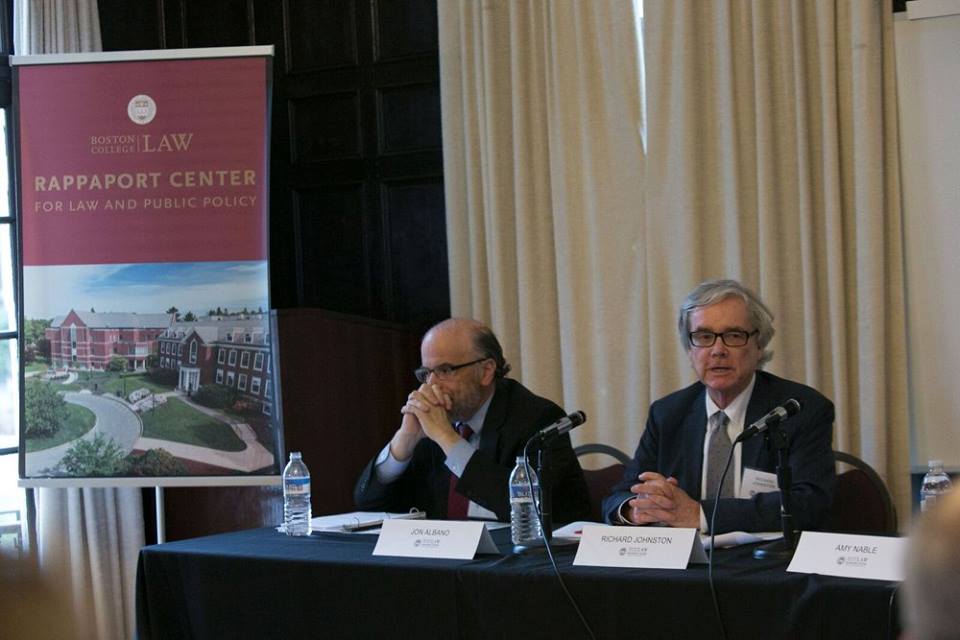Boston College Rappaport Center, The Civic Innovation Project, & Others Partner to Host Program
On February 25, 2016 the Civic Innovation Project teamed up with the Lincoln Institute of Land Policy, the Government Lawyer’s Committee of the Women’s Bar Association and the Rappaport Center for Law and Public Policy to host “Governing in a Digital Age,” a symposium centered on issues related to public records law and public data, that was recently featured in Boston College Law School Magazine. Amy Nable, director for the Division of Open Government in the Office of the Attorney General, moderated the first panel: “Public Records Reform: Challenges and Opportunities.” Panelists highlighted recent efforts made to update the state’s public records laws and the way in which these laws affect government transparency and personal privacy concerns.

Panelist Lon Povich launched the initial discussion. As the governor’s chief legal counsel, Povich addressed the ways in which his office expects to improve the executive branch’s compliance with the existing public records law. How exactly does one make a process about transparency more transparent? According to Povich, the office is attempting to make things more reasonable by establishing policies that will lower the cost of document production, encourage online publication of the most frequently requested documents, and reduce production time from 10 days to five.
To kick off the second panel on “Data Driven Leadership,” Civic Innovation Project Founder Lourdes German posed the following question to panelists: “What’s the data-driven story we’re going to tell citizens?”

For Holly St. Clair, the answer was simple: “Data is the language of the 21st century government.” St. Clair, who serves as the director of Enterprise Data Management for the Commonwealth, explained that data is how we invite people from the private sphere to figure out solutions to pressing problems in the public sphere. Careful to mention that data isn’t always right, she said, “We figure it out by talking to people, hearing [their] stories and comparing it to our data.”
Mayor Marty Walsh’s Chief of Staff Dan Koh couldn’t agree more. “In a democracy, government is a process of folks articulating different visions and concerns,” he said. The use of data in this process is therefore a “mutually enhancing experience” that “helps folks speak a common language and make better decisions.”

One way government leaders can make those better decisions is to use data to eliminate the “touches” it takes to deliver better government service. According to Jennifer Sullivan, assistant secretary for capital finance in the state’s Executive Office for Administration and Finance, “we want to reduce administrative burden to get citizens what they need.”
Much of Sullivan’s work is focused on figuring out how to make the wisest investment of the Commonwealth’s resources, an effort she thinks can be helped by incorporating data into policy. As she puts it, the data her office uses and finds relevant really “depends on your lens.”

The panel itself adopted a wider lens to the discussion by inviting Anthony Flint, fellow and director of public affairs for the Lincoln Institute of Land Policy, to comment on how data-driven leadership has affected the journalism community.
Flint said that newspapers have been assembling “terrific data teams” aimed at analyzing and packaging data – a role that has created a “great new frontier.” He commented on his hopes to use satellite imagery to come up with “an urban observatory for cities worldwide for city planners to figure out what needs to be done.”
For now, residents can rest assured that city and state leaders are consistently brainstorming and developing ways to use data and technology in their communications and decision-making. “We want more insight as to what Bostonians are feeling,” said Koh. “The burden is on us to show you the value in giving us that data.”